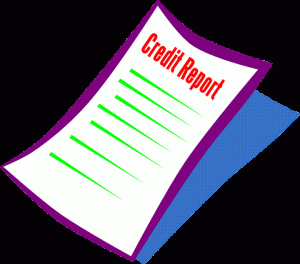A refinance of a loan is when a borrower replaces their existing consumer loan with a new one. The new funds repay the balance of the current loan, leaving a new repayment schedule, possibly a lower rate and amount.
 You will base your approach on the sort of consumer loan you’re refinancing, whether it’s a mortgage, auto, personal loan, or educational expenses. The primary concerns most people have when refinancing is how credit will affect the process and how refinancing will affect credit.
You will base your approach on the sort of consumer loan you’re refinancing, whether it’s a mortgage, auto, personal loan, or educational expenses. The primary concerns most people have when refinancing is how credit will affect the process and how refinancing will affect credit.
In order to refinance and do so to get a lower interest rate and more favorable terms, loan providers assess creditworthiness and a borrower’s financial profile. When the client applies for the refinance, the lender will check creditworthiness, resulting in a hard credit pull impacting the credit score.

The impact on the credit score is minimal, roughly a few points, while the inquiry remains on the report for about two years. Evaluating credit and financial profiles allows the lender to discern whether a borrower can repay if they were to refinance a loan, a primary consideration with approval.
Let’s examine different consumer loan products and how refinancing affects credit health.
How Does Refinancing Consumer Loans Affect Credit Health
Refinancing has the potential to help you repay loan balances much faster, in turn boosting credit. Different consumer loan products like mortgages, auto loans, personal lending, and educational expenses each have unique guidelines when it comes to refinancing, with credit needing to be a careful consideration.
A commonality with these is that you’ll compare lenders before committing to a single provider, but that can’t be truer than with home loans. The ideal way to avoid having multiple hard credit pulls that would damage a credit score substantially is to shop lenders within a brief period.
The suggested time frame is “between 14 and 45 days.” Doing so will count on the report as one hard credit pull regardless of how much shopping you do. Let’s examine refinancing the various products that fall under the consumer loan umbrella and how credit is impacted.
● The home loan refinance can dramatically impact credit
There are different ways a mortgage refinance can affect credit, most specifically when comparing lenders to use for the new loan. It’s critical to keep the shopping to a brief period to avoid having hard credit pulls spread out over a long period which can drop your score and reflect on your report for other providers.
When lenders or credit issuers see a multitude of inquiries, it appears you are struggling financially and desperately trying to break out of it. Their conclusion is you would likely have difficulty making repayment, and they choose to avoid the risk.

Another consideration to factor in is the payoff of an old mortgage that shows consistent, on-time, regular repayments for an extended period. That can impact your credit score since this is being removed from your record.
You’re starting over with a new loan, with which it will take some time to reestablish your consistency and boost your score back up. Learn steps for a mortgage refinance at https://www.businessinsider.com/personal-finance/steps-for-mortgage-refinance/.
● Should you refinance an auto loan
With an auto loan, you’ll get a second car loan to pay off the primary auto debt. Often a refinance is wise since there’s the potential for decreasing the monthly installment or possibly lowering the interest. Some people get to a point where they owe more on the car than it’s worth.
At that point, it becomes necessary to refinance. The priority is to determine the term. If you were to extend the loan’s life, you would pay more interest over the duration, making the loan more expensive overall but the monthly installment lower. The problem is the car will only continue to depreciate.
Refinancing for a shorter term makes the most sense if you intend to trade or sell the car within a few years.
How Can You Minimize Impacts On Credit From Refinancing
You can take steps to minimize the adverse effects refinancing has on credit and your financial standing. Before attempting to refinance, if you’re not already on top of your credit profile and score, you should check these to see how it stands.
Even if your score is good +, try to boost it by repaying some debt, maybe smaller loans or higher interest credit cards.
Ensure the report accurately depicts a consistent and prompt repayment history. Any errors should be corrected with the credit bureaus. With an impeccable profile and sound finances, the possibility for low rates and more favorable terms with the new loan is high.
Plus, the hard credit pulls that most of the products under the consumer loan umbrella might have on a credit score that’s considered excellent, especially when shopping loans, won’t be as noticeable since it will only be a few points keeping it in a good range.
Comparing lenders, though, like with a home loan, should be done within a relatively brief period if you want to see only a few point reduction in your score. Go here for details on refinancing a home loan.

A lot of hard inquiries spread out over a long duration; whether you have excellent credit or not doesn’t look good on a credit history when other providers see it and can drain the score more than a few points.
How Can You Make Corrections When Refinancing Adversely Affects Your Credit
Sometimes when multiple lenders make hard credit pulls on your credit, these are counted individually, depleting the score dramatically. If that happens when you make all of your loan comparisons within a 14–45-day time frame, an error has occurred and needs to be corrected.
When you shop in that brief span, all hard inquiries are counted as a single hard pull. That should not dramatically impact your credit, maybe a few points. You’ll first check your records to see if each inquiry fell within the allotted span and then reach out to the creditors to ensure the credit pulls were done once.
After you’ve confirmed the facts, it’s time to reach out to the credit bureaus with a dispute concerning the credit being misreported. The lender can advise of the bureau from which the credit report was taken, so you’ll know precisely where to go with your dispute.
If the lender isn’t sure because they received multiple reports, you’ll need to submit disputes with each bureau.
Final Thought
The objective when you søke om refinansiering (apply for refinancing) is that it will save money either by decreasing monthly installments or potentially lowering the interest rate.
While that’s ultimately the goal and is a positive when it happens the way you hope it will, there can be downsides even when you save money, like your credit being impacted negatively, dramatically, and for the long term.
An excellent example is when you decide to shop loan products or lending agencies to find that lowest rate or get that lesser monthly installment. If you took 50 days to shop lenders with them spread out over those weeks or months, these would be counted as individual hard credit pull on your credit report.
All those inquiries will show when lenders look to see what sort of risk you are in the future for roughly two years, causing them to question your credibility and reliability as someone who can repay monthly installments consistently.
Not only that but your score will be drained. It will bounce back, but it will take longer than if these were counted as one single inquiry. Had you made all of your comparisons within a 45-day time frame or less, they would have.
Maybe, you made it through and got your lower interest, or perhaps a lesser payment was your preference, but if your credit is dramatically damaged from multiple hard credit pulls, that’s not a win.
Your credit is a critical part of your identity. If creditors and lenders see these inquiries for the foreseeable future, products will be withheld to avoid what they perceive as too great of a risk until they fall off, roughly two years. That can mean no new credit cards or refinance again or small loans for emergencies.
When refinancing, you do have to ensure you’re saving money to protect your financial health, but you also need to pay attention to your credit as you go through the process to maintain a healthy credit profile.







